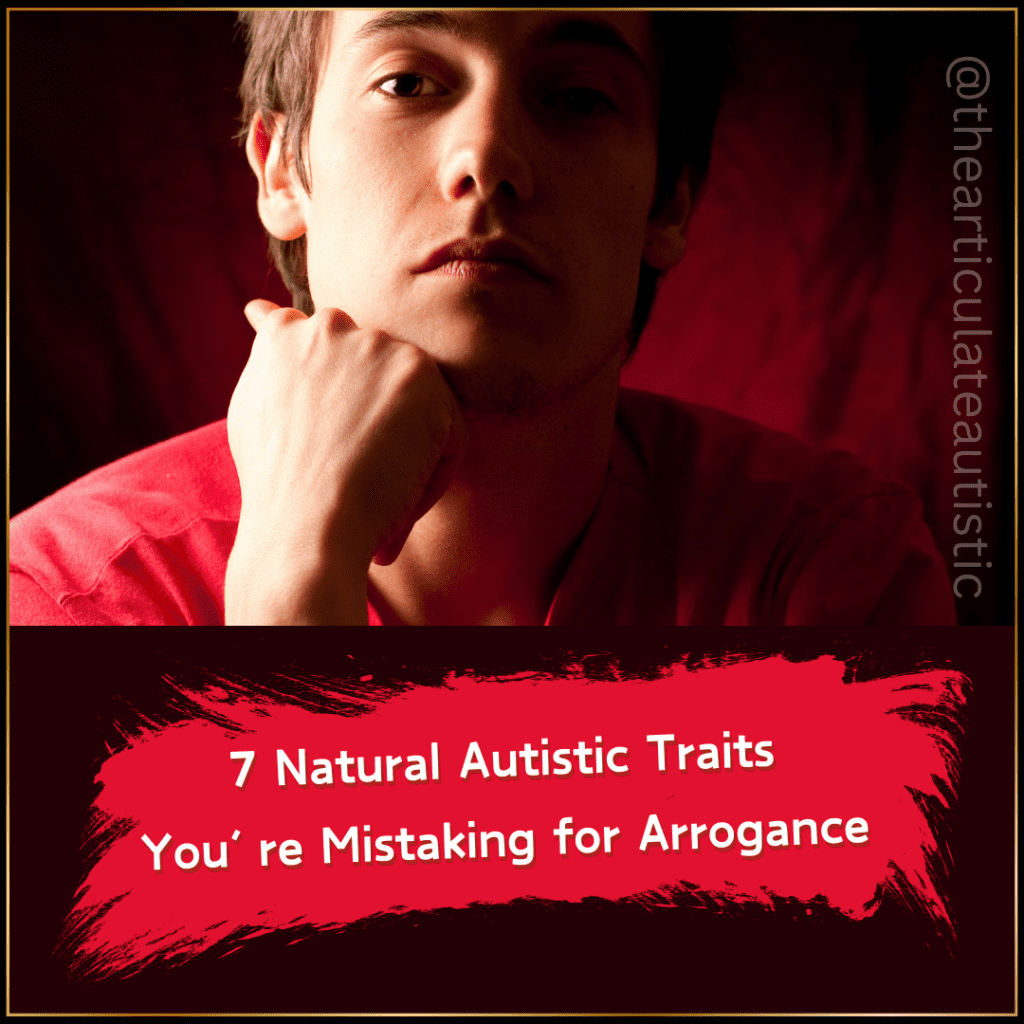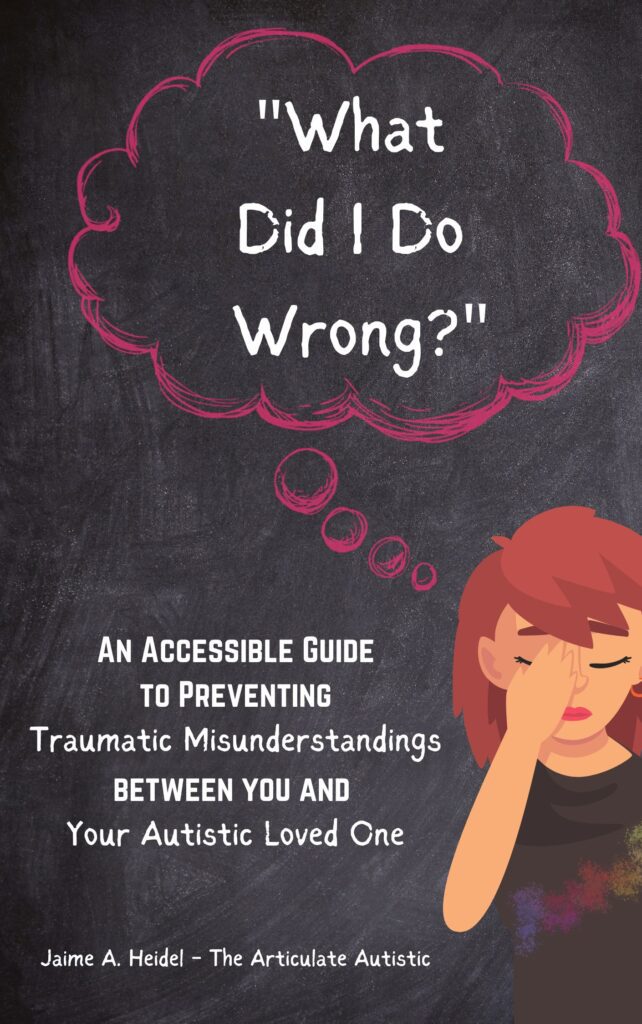7 Natural Autistic Traits You’re Mistaking for Arrogance

“If your nose were any further in the air, when it rained, you’d drown!” “You think you know everything, don’t you?” “Nobody can tell you anything!” “You always have an answer for everything!”
As a child, I always heard these accusations, and I was so lost and confused about them. What did they mean? Where did they come from all of a sudden? What did they have to do with the conversation we were just having?
I couldn’t connect my words or mannerisms to the emotional response people had to me, so I eventually concluded it was just all random, purposeless cruelty.
I know now that all of these accusations that seemed to come out of nowhere were meant to tell me that I came across as stuck-up or arrogant, but since I never felt stuck-up or arrogant, their words made no sense to me!
After years of studying and talking to other autistic people, I’ve come up with seven common reasons we may unknowingly come across as arrogant to non-autistic people:
- Monotone Voice
My natural speech pattern is deep and monotone. Over the years, I’ve learned to mask it by pitching it upward and adding cadence. I don’t advocate for masking, but this is one of the parts of myself that I put extra effort into modifying, so I don’t make an instant bad impression on everyone I meet.
When I was a child, however, my natural tone came across as bored and disinterested, and it made the adults around me accuse me of being arrogant.
- “Formal” Speech
“Formal” or pedantic speech patterns are another hallmark of being autistic, and, coupled with my ‘bored and disinterested’ voice, it only solidified the impression that I was being disrespectful and arrogant when speaking to adults because they saw me as trying to be on the same social level as them. Furthermore, since I had no concept of social hierarchy, the idea of ‘social levels’ didn’t make sense to me, either, so I was doubly confused.
- Flat Affect
As if my monotone voice and pedantic speech patterns weren’t enough to make me a target of continual misunderstandings, I also had a flat affect (meaning my face was devoid of expression unless I felt a big emotion). According to others, when I wasn’t having a meltdown, I looked perpetually bored, angry, or ‘catatonic’.
- Avoiding Others
Because of the way I was misunderstood and treated by others, I started avoiding people at a very early age, escaping into books where dialogue made sense, and I could process it at my own pace. Unfortunately, my preference for books over people was misperceived as my thinking I was “too good” for others.

- Not Recognizing Social Cues
Another reason people assumed I was arrogant when I was just autistic is that I didn’t recognize social cues. For instance, if I was talking about a subject at length, and the other person was showing non-verbal signs of boredom, I didn’t register it, and they interpreted this as me being obsessed with myself and not caring about the needs of others.
- Atypical Body Language
Many autistic people have hypermobile joints and low muscle tone, which can cause us to unconsciously compensate for it with an atypical posture.
This may mean we sit bolt-upright in a chair, hold our shoulders stiffly, cross our arms over our bodies, or hold our heads tilted at unexpected angles.
While these gestures may appear to give off subtle (and sometimes arrogant) social signals, we’re often simply holding our bodies in a way that feels natural and comfortable to us–no social meaning intended.
- Over-Explaining Information
It is common for autistic people to be bottom-up thinkers, meaning we need a lot of detail to form the big picture of what’s expected of us. Since bottom-up thinkers need so much detail to understand new information, we will often teach the same way; adding as many details as possible so as not to confuse our learners.
Unfortunately, over-explaining information can come across as being a “know-it-all” to non-autistic people who perceive it as being condescended to.
The Takeaway
Your autistic loved one may come across as arrogant or a know-it-all, but that’s likely not their intention. They’re simply being themselves, and they may genuinely have no idea what you’re reacting to.
A lifetime of being misunderstood in this way can cause lasting trauma. I know it did for me. This is why I wrote, “What Did I Do Wrong?” – An Accessible Guide to Preventing Traumatic Misunderstandings Between You and Your Autistic Loved One.
In it, I explain the most common misunderstandings between autistic and non-autistic people, and what you can do to improve your communication right away and restore some peace in your household.
Click on the link below to get your copy from Amazon today!





What an incredibly helpful website. It’s helping me learn and I am appreciative of the quality and content of the website.
Can you give guidance on how to repair a miscommunication between me and my aspie friend? I was harsh because I didn’t understand how he expressed friendship. He is not responding to my email and I don’t know if that is because he is angry or hurt and doesn’t want to talk or whether he just doesn’t know how to repair the problem with me. Please help me with what to do to make him feel comfortable in communicating with me again. I am despairing over this.
Hello, Amy. I’m sorry you’re struggling. 🙁 I’d be happy to do a consultation with you to go over the specifics of the situation and help mediate. You can find my booking page here: https://www.thearticulateautistic.com/private-consultation-translation-autistic-adult/